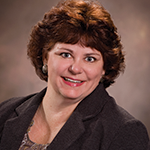
JOHN BIRDSALL SOCIAL ISSUES PHOTO LIBRARY / Science Source
As practice administrator for the past nine years at Emerald Coast Rheumatology in Lynn Haven, Fla., Andre Smith has worked to expand what was a single-provider, three-employee practice into an 8,000-square foot rheumatology clinic and 18-chair infusion center with two additional providers.
Although not all rheumatologists have a practice administrator on staff, those who do often find their practice runs more smoothly. Rheumatologists can delegate responsibilities, including finances, employee training and development, and billing, to their practice managers, leaving them more time to focus on providing optimal patient care.
With the healthcare field constantly evolving, practice managers must also stay up to date with new technology, government regulations and rules on reimbursement.
The Rheumatologist spoke with rheumatology practice managers from across the country to learn how they work in an interdisciplinary team, and partner with doctors to improve efficiency and drive better patient outcomes.
A Seamless Process

Mr. Smith
Mr. Smith sees his role as the practice’s problem solver. He works as a liaison with insurers so patients get the treatments and medications their rheumatologist wants them to have, even if this means appealing rejected claims.
“Lynn Haven is a very small town, and I regularly interact with our patients,” Mr. Smith says. “I work to ease their fears around medication costs and, in some cases, reassure them if they’re feeling stressed before undergoing an infusion.”
Mr. Smith, who came to the practice with a background in commercial real estate appraisal and management, believes a good practice manager should have strong analytical and business skills, as well as lots of patience.
“As a member of the ACR/ARP and a board member with the National Organization of Rheumatology Managers, I’m fortunate to have access to other rheumatology practice managers across the country,” Mr. Smith says. “There are always colleagues available to answer questions on payer policy changes, the best way to add a new physician to the practice or how to handle a difficult employee.”
Navigating Change

Ms. Ellis
On any given day, Nancy Ellis, practice administrator at the Piedmont Arthritis Clinic, Greenville, S.C., may be juggling operations, budget and finance, and human resource issues—various aspects of overseeing the practice.
“On a typical day, I may review contracts from insurance payers to determine if we want to join their network or examine distributor costs for medications and negotiate to get lower prices,” says Ms. Ellis.
She also works to ensure every patient has a positive experience and to assist those who have concerns about their cost of care. “As a private practice, I think we can provide that personal care to patients that often gets lost in a bigger clinical setting,” Ms. Ellis says.
Ms. Ellis, who has a master’s degree in business and health administration, joined the private practice 10 years ago. She says Piedmont Arthritis is the only freestanding private rheumatology practice left in upstate South Carolina.

